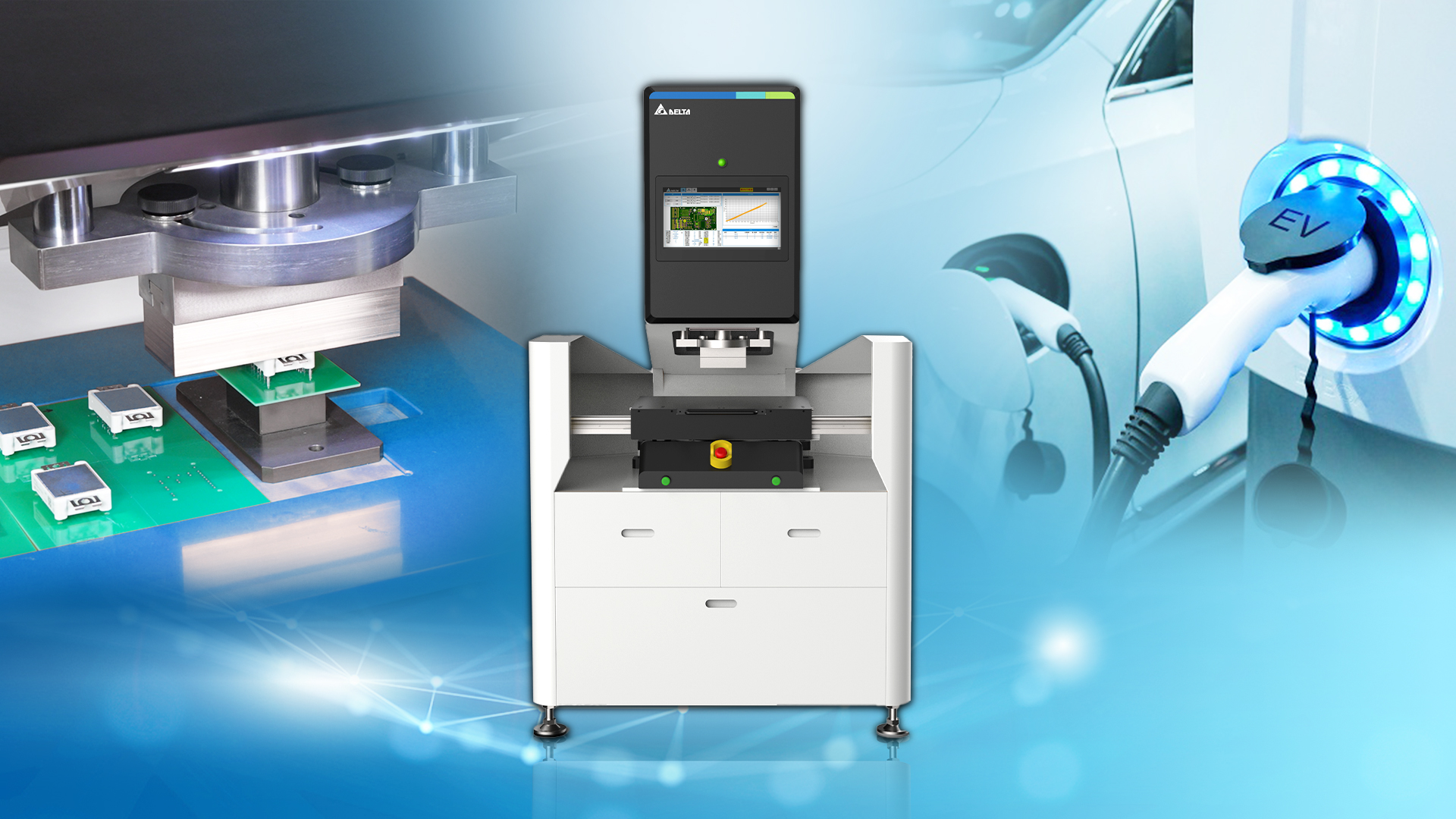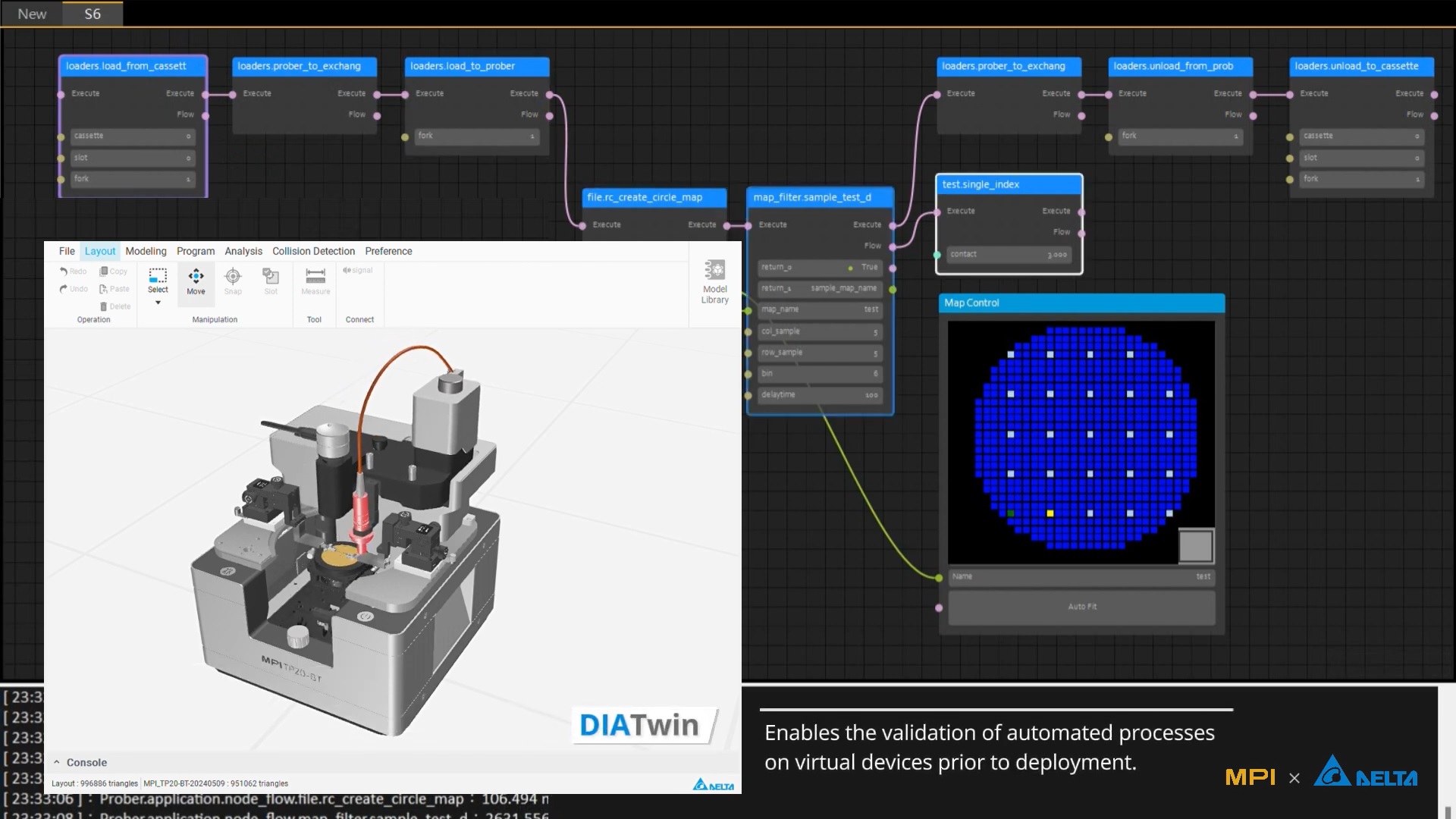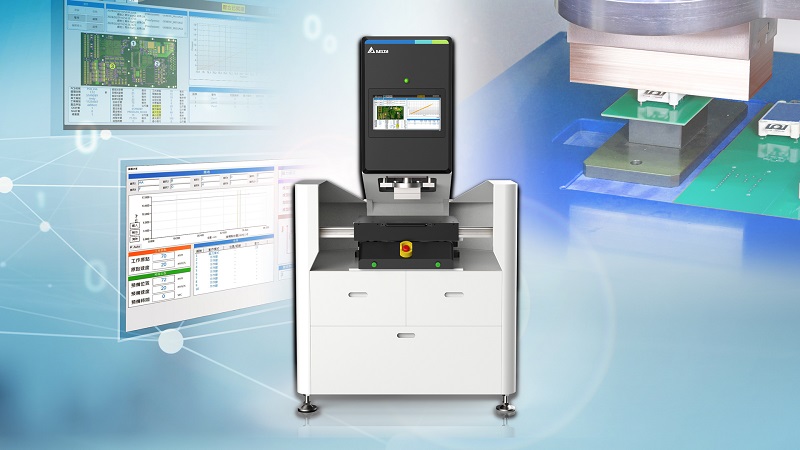
Delta has specifically developed the Press-Fit Smart Machine for the PCBA industry. This high-precision machine ensures stable force and can monitor the pressing process in real time for quality control.
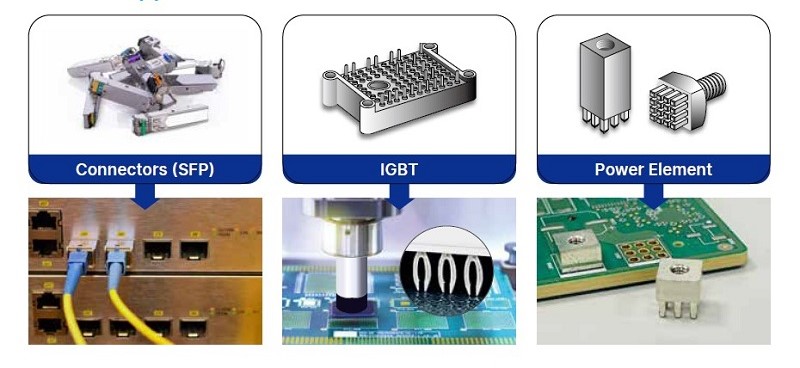
With the continuous evolution of the electronics industry, the PCBA sector is driven to develop and adopt new technologies.
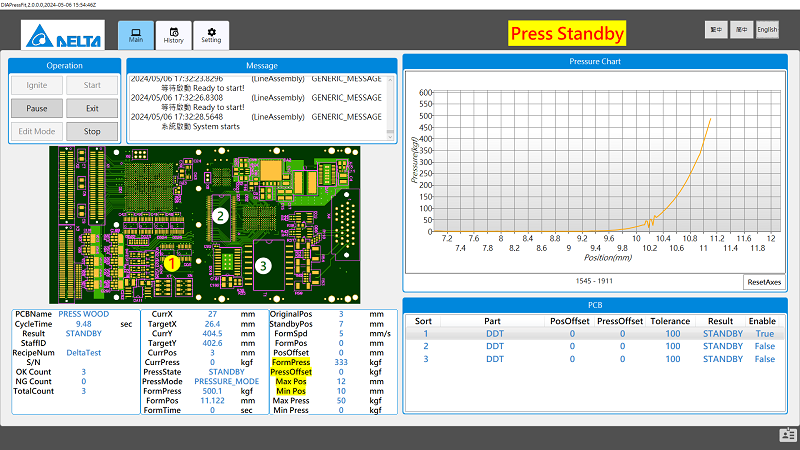
Built-in graphical guidance ensures accurate pressing steps. Pressing positions can be memorized and programmed for convenient operation.






